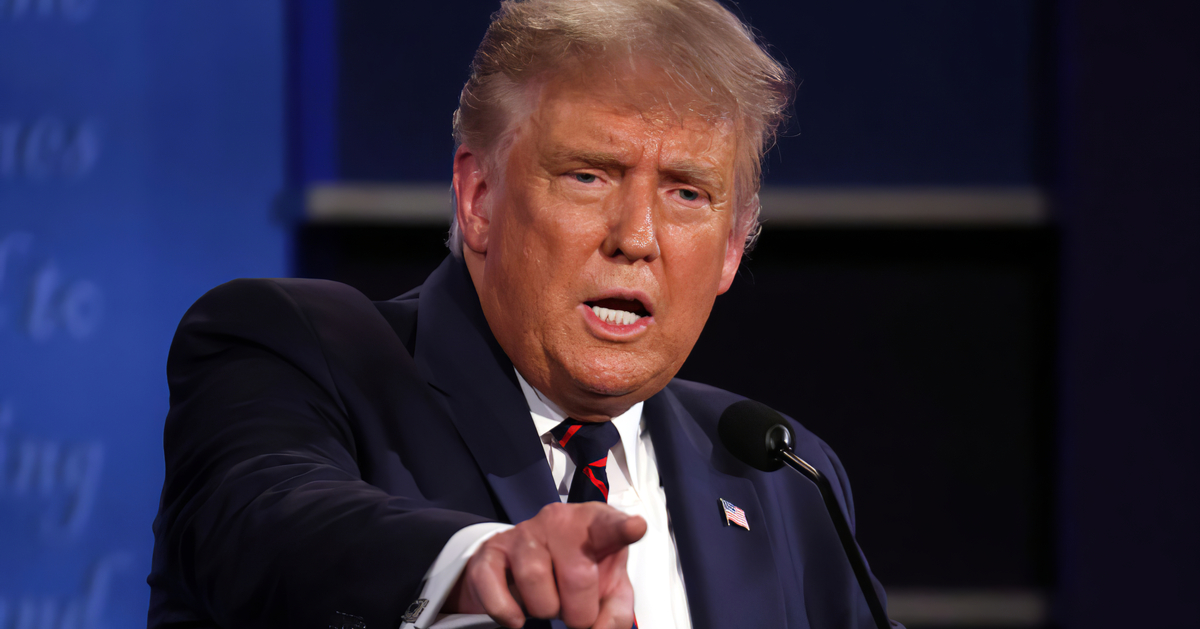GOP Senate poised to confirm Trump's first judicial nominee of second term
Arguably, the most lasting achievement of President Donald Trump's first term in office was the then-record-setting number of conservative-leaning judicial appointments that were confirmed as federal judges -- and three Supreme Court justices -- by the Republican-led U.S. Senate.
On Monday, round two of Trump's legacy of judicial success will begin with the likely confirmation of the first judicial appointment of his second term, Whitney Hermandorfer, who was nominated for a seat on the Sixth Circuit Court of Appeals, according to Politico.
In a 51-43 party-line vote on Thursday, the Senate's GOP majority voted to end debate on the nominee, the last procedural hurdle before a final confirmation vote, which is scheduled to occur once the senators return from their weekend break.
Trump nominee poised for confirmation
In May, George Washington University Law School proudly announced that President Trump had nominated alumnus Hermandorfer to serve as an appellate court judge on the Cincinnati, Ohio-based Sixth Circuit Court.
Hermandorfer, who graduated from GW Law in 2015, has not previously served as a judge but has worked as a clerk for three current Supreme Court justices, including Justices Samuel Alito in 2018, Amy Coney Barrett in 2020, and prior to that, Brett Kavanaugh when he was still on the D.C. Circuit Court, as well as for D.C. District Court Judge Richard Leon.
She most recently served as the director of the Strategic Litigation Unit in the Office of the Tennessee Attorney General, where she was "focused on leading constitutional, statutory, and administrative-law challenges to federal agency action and helped defend the State of Tennessee in complex matters on the trial and appellate level."
Praise and opposition for Hermandorfer emerge
In a Senate floor speech on Thursday, Judiciary Committee chairman Chuck Grassley (R-IA) expressed his support for President Trump's nomination of Hermandorfer, and said, "She really is a home-run pick -- or to use a more appropriate expression for a former basketball player, her nomination is 'nothing but net.'"
The senator lauded her "list of accolades" and professed, "At her hearing, we witnessed firsthand her impressive intellect, composure under pressure, professionalism, and collegial nature."
He further noted that the nominee "is dedicated to following the rule of law, not to advancing her preferred policy outcomes. Too often, we’ve seen judges play policymaker instead of being just simply a jurist. Ms. Hermandorfer understands the powerful role that judges have in our system of government, but even more importantly, she respects the limitations of that power."
"During the Biden administration, a substantial majority of judicial nominees received bipartisan support -- in fact, more than 80% of his nominees got bipartisan support. Republicans wouldn’t have picked most of those judges, but many of them still got support from my side of the aisle," Grassley added. "Given her impeccable qualifications, I hope we can have the same bipartisan support today for Ms. Hermandorfer. Otherwise, it just shows how political[ly] partisan the other side has become."
Unfortunately, the bipartisan support that Grassley requested is unlikely to materialize, as all Senate Democrats seem likely to fall in line behind the demands of the coalition of leftist advocacy groups known as the Leadership Conference on Civil and Human Rights, which staunchly opposes Hermandorfer's nomination because of her conservative stance on issues like abortion, special rights for the LGBTQ community, birthright citizenship for illegal aliens, labor unions, executive branch powers, and climate change.
Dearth of vacancies leads to slow nomination pace
The New York Post reported that President Trump set a record in his first term with 234 judicial confirmations -- which former President Joe Biden later bested by one with 235 approved picks -- but is well behind that pace to begin his second term.
Yet, as Senate Majority Leader John Thune (R-SD) explained, that slow pace for Trump is, at least in part, because he is a victim of his own success, in that there aren't nearly as many empty spots on the bench for him to fill -- to say nothing of the fact that the Senate has also been largely preoccupied with the efforts to legislatively enact Trump's policy agenda.
"One of the great achievements of President Trump’s first term was the confirmation of some 234 judges to the federal bench," Thune remarked Thursday on the Senate floor. "We’re not facing the number of judicial vacancies this Congress that we faced during President Trump’s first term. There are currently only around 50 vacancies on the federal bench."






